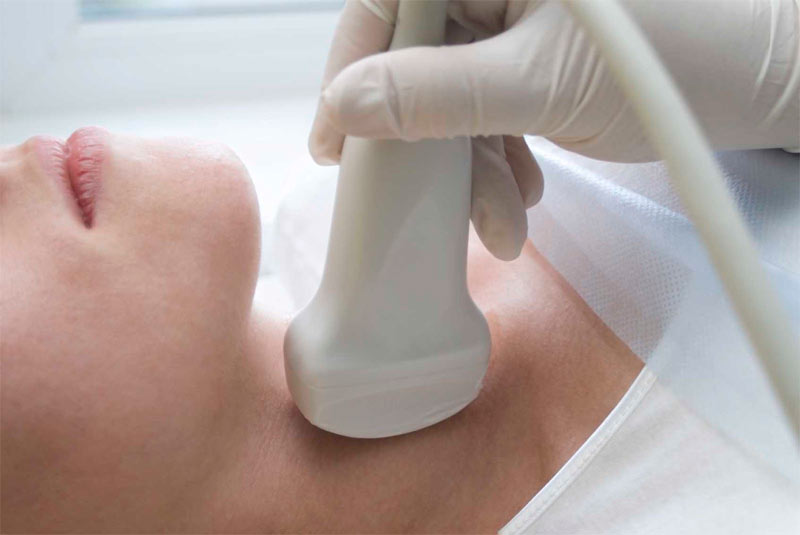Your thyroid is located above your breastbone near the base of your neck.
If fluid-filled lumps or solid lumps form within the small thyroid gland, you may notice symptoms such difficulty swallowing, shortness of breath, irregular heartbeat, sudden weight loss, or feelings of anxiety.
In many cases, however, people do not discover that they have thyroid nodules until their doctor discovers the problem during a routine exam.
Common Causes of Thyroid Nodules
There are many conditions that can cause thyroid nodules to develop.
The causes include:
- Thyroid Cyst. Cysts are fluid-filled cavities that are typically benign, but portions of these cysts can be malignant.
- Iodine Deficiency. Insufficient iodine in a person’s diet can cause the thyroid gland to develop nodules.
- Chronic Inflammation. Hashimoto’s disease is a thyroid disorder that can lead to inflammation of the thyroid. When the thyroid gland is inflamed and enlarged, the activity of the gland can become significantly compromised.
- Thyroid Adenoma. This is the overgrowth of thyroid tissue and is usually benign. In most cases, this condition does not cause further complications. However, some individuals with thyroid adenoma develop hyperthyroidism—the overproduction of thyroid hormones.
- Thyroid Cancer. In most cases, thyroid nodules are not cancerous. However, your family history and other risk factors such as exposure to radiation may increase your chances of developing malignant forms of thyroid nodules.
Regular medical checkups are important for possible detection of a number of health conditions, including the development of thyroid nodules. While most thyroid issues can be treated without surgery, it is important to rule out cancer. The nature of most thyroid nodules can be determined by needle biopsy, with the diagnosis made on cytology. When the results of a thyroid biopsy are not specific then surgical excision, usually by hemithyroidectomy, will be needed. The whole nodule can then be analysed by thorough pathological examination.
So one of the key roles of a thyroid surgeon is to determine which thyroid nodules require surgical excision and which can be followed conservatively. Detected early enough, thyroid cancer can be effectively treated with an excellent prognosis. Other conditions may require medications and other non-surgical methods short- or long-term.
If you have questions about thyroid nodules contact your local doctor, who will arrange for you to see a thyroid surgeon.

